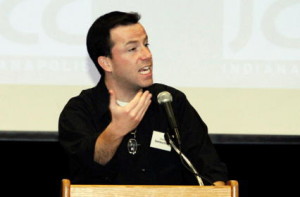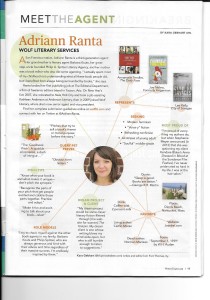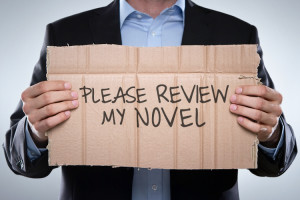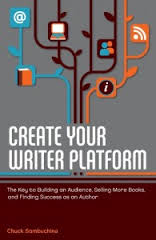Arizona Writing Workshop
 I attended a Writing Workshop sponsored by the Society of Southwestern Authors (www.ssa-az.org), and presented by Writer’s Digest. It was a one-day presentation of information for authors about publishing, marketing, and selling books.
I attended a Writing Workshop sponsored by the Society of Southwestern Authors (www.ssa-az.org), and presented by Writer’s Digest. It was a one-day presentation of information for authors about publishing, marketing, and selling books.
 This substantial info-dump was conducted by Chuck Sambuchino (www.chucksambuchino.com), book editor for Writer’s Digest and editor of Guide to Literary Agents. He had good handouts and a pleasant presentation style. Some of his own books were for sale. Apparently this is a road show that WD puts on in various cities around the country. About 100 people attended the Tucson meeting. The day before, they gave the same dog-and-pony in Phoenix. Sambuchino said he’d given his act five times in the last seven days. That’s a heck of a way to sell a handful of books.
This substantial info-dump was conducted by Chuck Sambuchino (www.chucksambuchino.com), book editor for Writer’s Digest and editor of Guide to Literary Agents. He had good handouts and a pleasant presentation style. Some of his own books were for sale. Apparently this is a road show that WD puts on in various cities around the country. About 100 people attended the Tucson meeting. The day before, they gave the same dog-and-pony in Phoenix. Sambuchino said he’d given his act five times in the last seven days. That’s a heck of a way to sell a handful of books.
 A big draw to the conference was the presence of three pitchable agents. One specialized in children’s and YA, another in Christian topics, and the third, general commercial and literary fiction. I signed up for that one and gave a 10-minute pitch, which was pretty bad, but did result in a request for a query and 50 pages, so I guess it wasn’t totally horrible. I’m assuming I’ll get better at pitching the more I do it.
A big draw to the conference was the presence of three pitchable agents. One specialized in children’s and YA, another in Christian topics, and the third, general commercial and literary fiction. I signed up for that one and gave a 10-minute pitch, which was pretty bad, but did result in a request for a query and 50 pages, so I guess it wasn’t totally horrible. I’m assuming I’ll get better at pitching the more I do it.
A comparison of traditional and self-publishing was useful for confirming what I already knew. Traditional publishing is virtually impossible to break into these days, the economics of it are horrible, it’s an extremely slow process; it’s biased against the author, and commercial success is extremely rare. However, it has two powerful virtues that self-publishing cannot match: 1. It confers legitimacy, and 2. The publisher does all the production work (though not the marketing).
 Self-publishing, which means, overwhelmingly, e-publishing, has lost much of its stigma. Plenty of good quality literature is self- published, along with a lot of junk, but there are no gatekeepers. You have a much better shot at finding an audience with self-publishing.
Self-publishing, which means, overwhelmingly, e-publishing, has lost much of its stigma. Plenty of good quality literature is self- published, along with a lot of junk, but there are no gatekeepers. You have a much better shot at finding an audience with self-publishing.
The costs are low-to-zero for e-publishing, although you can purchase, for reasonable fees, independent editing, cover design, publicity, and so on. You retain all your rights and earn higher royalties. On the downside, discoverability is a huge problem. Thousands of new books are e-published every day. You have to do your own marketing, because you will not be “discovered” like Cinderella.
The section on creating a writer’s platform was the most informative for me. A platform is basically a marketing strategy, centered on internet media. A typical platform consists of an author’s web site and blog, supplemented with a social media presence, such as Facebook, Goodreads, Twitter, among many others. Marketing is not sales, of course. You can’t actually sell books on social media, but you can build a brand. This conference was apparently a “plank” in Sambuchino’s marketing platform.
 I’m temperamentally allergic to social media, but I recognize the value. I need to bite the bullet and try to revive my derelict Facebook page. I can also blog more directly on matters related to my writing.
I’m temperamentally allergic to social media, but I recognize the value. I need to bite the bullet and try to revive my derelict Facebook page. I can also blog more directly on matters related to my writing.
Another idea is to go in with a few friends on a collective platform. We could take turns writing blog articles, and we could cross-promote and review each other’s books. That sounds like more fun than building up a personal marketing platform. Probably both formats would be useful.
For a cost of $99 and eight hours of my life, this was a moderately productive conference.
